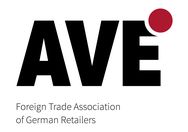Requirements and frameworks for companies
The requirements on companies of all sizes to engage in socially responsible supply chain management as well as transparent reporting on ecological and social aspects are increasing.
You will find here a selection of German- and English-language links to the most important frameworks and requirements:
National guidelines and laws
National action plan on business and human rights
The national action plan (NAP) on business and human rights was adopted by the German Federal Government in the Federal Cabinet on 21 December 2016. In the first place, the action plan describes a wide-ranging list of measures by the Federal Government to do greater justice to the State’s duty to protect human rights, specifically also in the economic context. In the second place, the Federal Government enshrines in the action plan for the first time the responsibility of German companies for observance of human rights in a fixed framework. The Federal Government formulates its expectation that companies will observe the statutory due diligence and human rights along their supply and value-creation chains. You will find further information here.
CSR reporting obligation
Since January 2017, German companies have for the first time been obliged under the law transposing the CSR directive also to disclose non-financial information about business activities, for example on environmental and social matters.
UK Modern Slavery Act
The British law obliges companies to issue an annual slavery and human trafficking statement which must set out how the company is acting against forced labour, slavery and human trafficking in its supply chain.
The law also relates to companies outside the United Kingdom if they generate a worldwide annual turnover of more than GBP 36 million and distribute goods or services in the United Kingdom. This means that the scope now also encompasses a fairly large number of German companies.
Loi relative au devoir de vigilance des sociétés mères et des entreprises donneuses d'ordre
The French law on corporate due diligence entered into force on 27 March 2017.
It affects:
- all companies headquartered in France with at least 5,000 employees including domestic subsidiaries,
- all companies headquartered in France with at least 10,000 employees including domestic and foreign subsidiaries abroad,
- German companies which meet the above criteria as well as suppliers.
The affected companies must draw up a due diligence plan (“plan de vigilance”) which enables them to prevent violations of human rights or of environmental protection rules and to identify the corresponding risks, publish it in their annual report and implement it effectively. It targets all activities of the group and associated (direct and long-term) trading partners in the value-creation chain.
In addition, the law establishes liability under civil law in the event of damage.
Conflict minerals – due diligence obligation for importers
Regulation (EU) 2017/821 of the European Parliament and of the Council of 17 May 2017 sets out obligations for ensuring due diligence in the supply chain for importers of tin, tantalum, tungsten, their ores and gold from conflict-affected and high-risk areas.
According to the initiative, large companies with more than 500 employees which buy these minerals and incorporate them in their products must in future disclose their procurement practice. In this regard, it should be clarified that the new provisions are met from the source. Firms can then be included in an EU register and try to acquire market advantages vis-à-vis less transparent competitors in this way. Small enterprises must undergo a “due diligence test” by 2021 at the latest.
REACH regulation
The EU REACH regulation (Registration, Evaluation , Authorisation and Restriction of Chemicals) has been in force since 2007 and seeks to ensure a high level of protection for human health and the environment. REACH is based on the principle that manufacturers, importers and downstream users should assume responsibility for their chemicals: they must ensure that chemicals which they produce and bring into circulation are used safely. The REACH regulation is regarded as one of the strictest chemical laws in the world.
International frameworks
ILO core labour standards
The ILO core labour standards are international labour and social standards adopted by the International Labour Organization (ILO). They comprise eight conventions based on ILO’s four fundamental principles: freedom of association and the right to engage in collective bargaining, elimination of forced labour, abolition of child labour, ban on discrimination in employment and occupation. In line with the “Declaration on declaration on fundamental principles and rights at work, ILO members undertake to respect, promote and implement the principles.
OECD guidelines for multinational enterprises
The OECD guidelines for multinational enterprises are one of the most important and most comprehensive international instruments for promoting responsible corporate governance.
The guidelines describe what is expected of companies in their worldwide activities in their interaction with trade unions, in environmental protection, in combating corruption and in looking after consumer interests. In addition, they comprise recommendations for foreign investments and cooperation with suppliers.
UN guiding principles on business and human rights | Ruggie principles
The UN guiding principles on business and human rights (“implementing the United Nations protect, respect and remedy framework”) by the UN Special Representative for business and human rights, Professor John Ruggie, set out how States and companies can implement the UN framework.
UN sustainable development goals (SDGs) | Agenda 2030
The world community adopted Agenda 2030 in 2015. The Agenda is a roadmap for the future. Its overarching goal to create the conditions for a decent life worldwide. This encompasses economic, ecological and social development aspects. All are invited to orient their action around this. Based on Agenda 2030, the Federal Government has also developed a national sustainability strategy which comprises concrete tasks and objectives.
Guidance and orientation aids for companies
“The role of importing retailers is now more important than ever. It not only gives customers access to products from around the world, but also increasingly takes responsibility for people and the environment in global supply chains, thus ensuring the future viability of our industry.”
Michael Reidick
C&A-Gruppe

